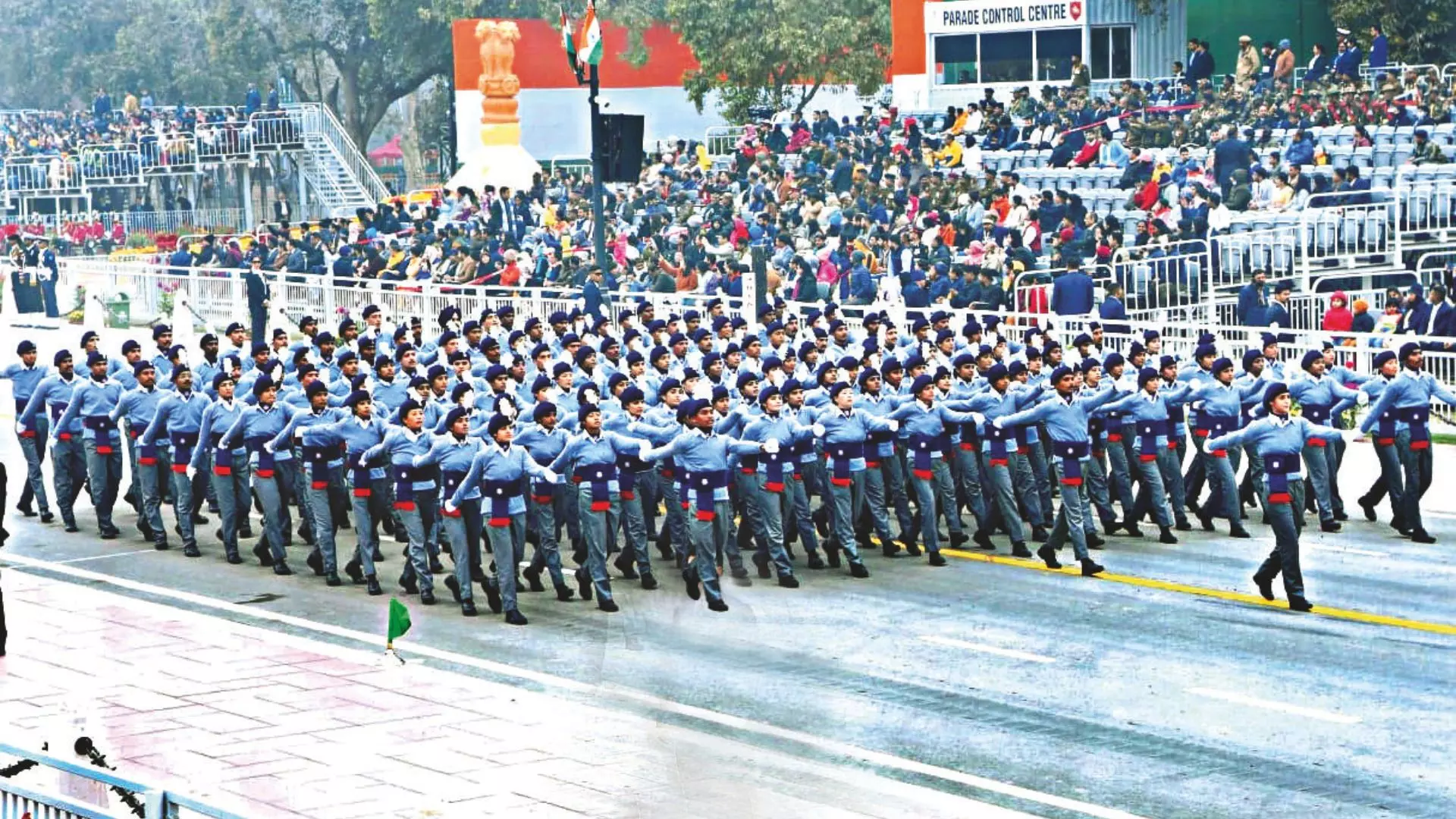NSS, tiny atoms Of big change

As India celebrates its 78th Independence Day on August 15, not many know that the National Service Scheme (NSS) has been active in shaping young minds, instilling in them a deep sense of patriotism and social responsibility during their time in college. From organising blood donation drives, tree plantation, vaccination programs, AIDS awareness campaigns, and street plays to building check dams in parched villages, the NSS volunteers strive to make India a better place.
(Wo)men at Work
The NSS has cultivated a vibrant community of college students who are defying expectations and proving that youth can be a potent force for positive change. Sneha Jere, an ex-NSS volunteer from Sophia College for Women, Mumbai says, “This was my favourite part.” Sneha and her peers were assigned the village of Haloli near Palghar, where they built a check dam for water storage for villagers, organized plays for period awareness, and immersed themselves in rural communities to understand their cultures and traditions. Deepshikha Singh, another ex-NSS volunteer, Thakur College shares her experiences of visiting Talavali village and organising a medical camp for 400 school kids, establishing a kitchen garden, donating books to the school library, and enjoying festivities with the villagers.
Selfless Service
What started as a small project, with 40,000 students enrolled across 37 universities in 1969, today the NSS has a volunteer strength of 39 lakh people (in aided programmes) across India. Ajay Shinde, Regional Director of NSS for Pune (Maharashtra) says that the NSS is active in almost all colleges. “We have around 3,56,800 volunteers in this state.” Every college maintains an NSS unit of at least 100 students. To ensure effective management, a dedicated programme officer is appointed for each group of 100 students.
NSS activities fall into two main categories. The first involves year-round community service initiatives such as blood donation drives, tree plantations, vaccination programs, AIDS awareness campaigns, street plays, and many more. These projects are either entirely student-led or are in collaboration with local NGOs. Nilesh Pathak, the State NSS Officer (Maharashtra), says, “Volun-teers are required to dedicate 240 hours to community service over two years. This commitment includes participation in a mandatory seven-day camp in a village adopted by their college.”
The second category of activities is the national-level camps. These are the National Integration Camp (NIC), and Adventure Camp, and the most prestigious of them all is the Republic Day Parade Camp (NRD). Singh describes marching in a file on the Rajpath during the 2023 parade as the highlight of her life. Volunteers undergo multiple layers of selection, starting at the college level and progressing through district, university, and state. Only 200 individuals from across India are selected in the final pre-national round, earning the privilege to march in New Delhi and salute the President on Republic Day. “Candidates are evaluated on marching proficiency, physical endurance, and cultural performances throughout the selection process,” Singh explains. Those selected for the Delhi parade have a hectic schedule. “We rose at 5 AM for exercise followed by marching practice until noon. After breakfast, we attended lectures held by ex-military officers and bureaucrats. The afternoon was dedicated to more marching practice and cultural rehearsals, with dinner and sleep by midnight,” says Singh. The NSS volunteers are taken on a visit to the Prime Minister’s house, one day before the big parade. Post-parade, they visit the residences of the President and the Vice-President where they interact and click a formal photograph with the leaders.
Challenges & Impact
However, one of the challenges faced by NSS is to motivate youngsters from urban areas to join the initiative. “Rural students often demonstrate greater enthusiasm for NSS compared to their urban counterparts, who face challenges adapting to new environments. Moreover, the demanding academic schedules of students hinder active NSS participation,” says Shinde. Akshata opines that just as the National Cadet Corps (NCC) is applauded for guarding the border, NSS should be recognized for its work to better civil society. The pan-India activities of NSS have pushed youngsters to interact with people from diverse backgrounds, and truly live up to its motto: Not me, but you!
India’s youth have a lot of potential and if harnessed correctly, it can move towards a concrete direction of change.” — Nilesh Pathak, State NSS Officer (Maharashtra)
Rural students often demonstrate greater enthusiasm for NSS compared to their urban counterparts, who face challenges adapting to new environments.” — Ajay Shinde, Regional Director of NSS, Pune

